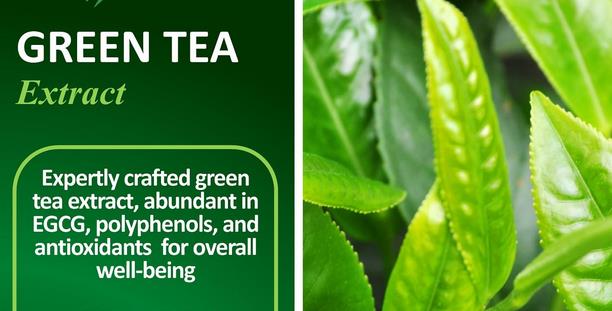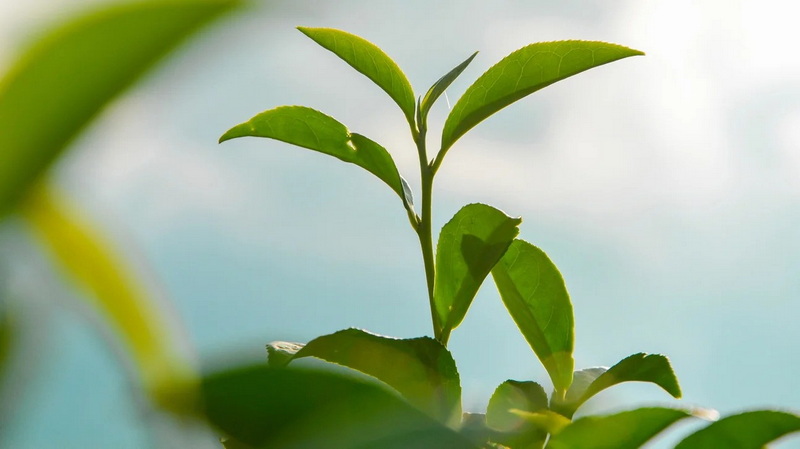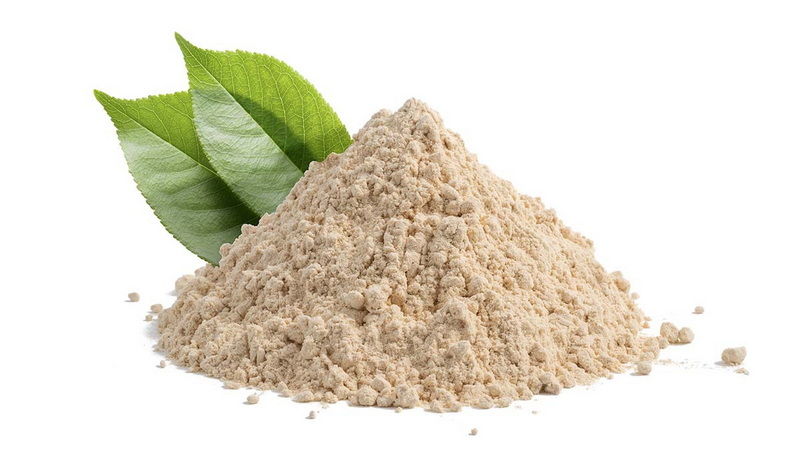Content Menu
● Understanding Green Tea Leaf Extract
>> Key Components of Green Tea Extract:
● Caffeine Content in Green Tea Leaf Extract
● How Does Green Tea Compare to Other Caffeinated Beverages?
● Effects of Caffeine in Green Tea Leaf Extract
● Health Benefits Beyond Caffeine
>> Antioxidant Properties
>> Weight Loss Support
>> Heart Health
>> Neuroprotective Effects
>> Blood Sugar Regulation
● Recommended Dosage
● Potential Side Effects
● Special Considerations
● Conclusion
● FAQ
>> 1. How much caffeine is typically found in green tea leaf extract?
>> 2. Can I take green tea extract if I am sensitive to caffeine?
>> 3. What are the health benefits of green tea leaf extract?
>> 4. How does green tea extract compare to other caffeinated beverages?
>> 5. Is it safe to consume high doses of green tea extract?
● Citations:
Green tea has gained immense popularity not only as a beverage but also as a dietary supplement due to its numerous health benefits. Among the many compounds found in green tea, caffeine is one of the most notable. This article explores the caffeine content in green tea leaf extract, its effects, and how it compares to other sources of caffeine.

Understanding Green Tea Leaf Extract
Green tea extract is derived from the leaves of the *Camellia sinensis* plant, which is also the source of black and oolong teas. The extraction process concentrates the beneficial compounds found in green tea, including catechins, polyphenols, and caffeine.
Key Components of Green Tea Extract:
- Catechins: These are powerful antioxidants that contribute to many of green tea's health benefits.
- Caffeine: A natural stimulant that can enhance alertness and energy levels.
- L-theanine: An amino acid that promotes relaxation without drowsiness, often balancing the stimulating effects of caffeine.
Caffeine Content in Green Tea Leaf Extract
The caffeine content in green tea leaf extract can vary significantly based on several factors:
- Brand and Formulation: Different manufacturers may use varying amounts of green tea leaves and extraction methods.
- Type of Extract: Some extracts are standardized for specific compounds like EGCG (epigallocatechin gallate), which may influence caffeine levels.
Generally, a standard serving of green tea extract can contain anywhere from 25 mg to over 200 mg of caffeine. For example:
- Low-Caffeine Extracts: Some products may contain as little as 25 mg per serving.
- High-Caffeine Extracts: Others can exceed 200 mg per serving.
How Does Green Tea Compare to Other Caffeinated Beverages?
To put the caffeine content into perspective, here's a comparison with other common sources of caffeine:
| Beverage | Caffeine Content (mg) |
| Brewed Coffee (8 oz) | 95 - 165 |
| Espresso (1 oz) | 63 |
| Black Tea (8 oz) | 40 - 70 |
| Green Tea (8 oz) | 30 - 50 |
| Green Tea Extract (1 serving) | 25 - 200+ |
As illustrated, while green tea contains less caffeine than coffee, certain extracts can have comparable or even higher levels depending on the formulation.
Effects of Caffeine in Green Tea Leaf Extract
Caffeine is known for its stimulating properties. In moderate amounts, it can provide several benefits:
- Increased Alertness: Caffeine stimulates the central nervous system, helping to improve focus and reduce fatigue.
- Enhanced Physical Performance: Studies suggest that caffeine can enhance athletic performance by increasing endurance and reducing perceived effort during exercise.
- Weight Management: Some research indicates that caffeine may aid in weight loss by boosting metabolism and promoting fat oxidation.
However, excessive consumption can lead to negative side effects such as:
- Anxiety
- Insomnia
- Heart palpitations
- Jitters

Health Benefits Beyond Caffeine
Green tea leaf extract is not just about caffeine; it is rich in various bioactive compounds that offer a range of health benefits:
Antioxidant Properties
Green tea is loaded with polyphenols, particularly catechins like EGCG. These compounds act as powerful antioxidants that combat oxidative stress in the body. Oxidative stress is linked to various chronic diseases, including cancer and heart disease. Regular consumption of green tea has been associated with lower risks of these conditions.
Weight Loss Support
Several studies suggest that green tea extract can aid in weight loss by enhancing metabolic rate and fat oxidation. A study indicated that participants who consumed green tea extract alongside exercise experienced greater fat loss compared to those who did not consume it.
Heart Health
Green tea has been shown to improve cardiovascular health by reducing total cholesterol and LDL cholesterol levels while increasing HDL cholesterol. This balance helps lower the risk of heart disease and stroke.
Neuroprotective Effects
Research indicates that the catechins in green tea may have protective effects on brain health. They have been linked to a reduced risk of neurodegenerative diseases such as Alzheimer's and Parkinson's disease. The antioxidants in green tea help reduce inflammation and oxidative stress in brain cells.
Blood Sugar Regulation
Some studies suggest that green tea may help regulate blood sugar levels and improve insulin sensitivity. This effect could be beneficial for individuals with type 2 diabetes or those at risk for developing it.
Recommended Dosage
For those considering taking green tea extract supplements, it's essential to adhere to recommended dosages. Most studies suggest a daily intake of between 250 mg to 500 mg of green tea extract for optimal health benefits without adverse effects.
Potential Side Effects
While generally safe for most people when consumed in moderation, high doses of green tea extract can lead to side effects such as:
- Jitteriness
- Headaches
- Nausea
- Liver toxicity (in rare cases)
It's advisable to take supplements with food to minimize gastrointestinal discomfort and potential liver issues.
Special Considerations
Certain populations should be cautious when consuming green tea extracts:
- Pregnant Women: High doses of caffeine during pregnancy may increase the risk of miscarriage or low birth weight. It's recommended to limit intake to about 300 mg per day.
- Individuals with Anxiety Disorders: The stimulating effects of caffeine may exacerbate anxiety symptoms.
- People with Liver Conditions: Those with pre-existing liver issues should consult a healthcare provider before using high-dose extracts.
Conclusion
In summary, green tea leaf extract does contain caffeine, with amounts varying widely among different products. While it offers several health benefits associated with both catechins and caffeine, it is crucial for consumers to be aware of their total daily caffeine intake from all sources. Moderation is key to enjoying the benefits while minimizing potential side effects.

FAQ
1. How much caffeine is typically found in green tea leaf extract?
The caffeine content can range from 25 mg to over 200 mg per serving depending on the brand and formulation.
2. Can I take green tea extract if I am sensitive to caffeine?
If you are sensitive to caffeine, consider starting with a low-caffeine extract or consult with a healthcare professional before use.
3. What are the health benefits of green tea leaf extract?
Green tea leaf extract may aid in weight loss, improve mental alertness, enhance physical performance, and provide antioxidant benefits.
4. How does green tea extract compare to other caffeinated beverages?
While it generally contains less caffeine than coffee or espresso, certain extracts can have comparable levels depending on their concentration.
5. Is it safe to consume high doses of green tea extract?
High doses can lead to side effects such as liver damage or toxicity; therefore, it's advisable to stick within the recommended dosage range of 250 mg to 500 mg per day.
Citations:
[1] https://pmc.ncbi.nlm.nih.gov/articles/PMC6412948/
[2] https://www.medicalnewstoday.com/articles/269538
[3] https://www.webmd.com/vitamins/ai/ingredientmono-960/green-tea
[4] https://www.healthline.com/nutrition/camellia-sinensis-leaf-extract
[5] https://hsph.harvard.edu/news/green-tea-healthy-habit/
[6] https://www.mountsinai.org/health-library/herb/green-tea
[7] https://www.nccih.nih.gov/health/green-tea
[8] https://health.clevelandclinic.org/green-tea-extract-a-better-way-to-boost-energy-or-not
[9] https://my.clevelandclinic.org/health/drugs/20553-green-tea-oral-dosage-forms

 English
English 




























